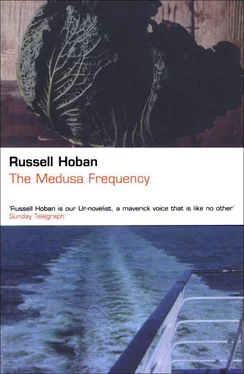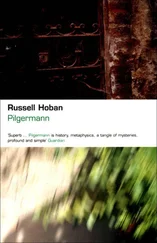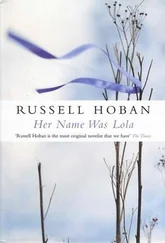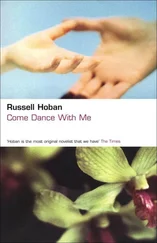‘Sylvestre Lyzée wrote the piece; he said that it worked on the deconstructionist level but he had a little trouble with the reality-frame.’
‘Wasn’t it directed by what was his name, Gustav Krähe?’
‘Gösta Kraken.’
‘He’s the one where it’s always very dark and you often see people lying in puddles, isn’t he? Didn’t he do a film called Squelchy Places?’
‘Bogs. In this one he goes in for rivers and low-tide mud a lot. The look of it is really terrific, that shot of the head coming up the Thames against the tide stays in the mind like some of Eisenstein’s images. It isn’t like the head of a swimming man, it’s all rotting and bloated and eyeless and it has this awful stillness about it as it moves upriver.’
I’d brought with me the pages I’d typed so far and at some point I’d put the folder on the table. There it lay in the shadow of Codename Orpheus. I put it back in my shoulder bag.
‘You brought a typescript with you and now you’ve put it away,’ she said. ‘Why’d you do that?’
‘This night is different from other nights,’ I said. As I said it I had the sensation of rocking in the sea and feeling something rising dark and huge from the black chill, becoming pale and glimmering, becoming Luise rising in her vast and ivory nakedness in the dark, in the night sea. So deep, the sea! So vast and comfortless! I shaded my eyes with my hand and looked down into the transparency of the gin in my glass, smooth brightness in the shining dawn and Luise seen across the water rising naked, huge, gleaming in the shining dawn.
‘Are you looking into the past?’ said Melanie.
‘It’s looking into me,’ I said, with Luise again at Mr Chow eleven years ago. You’re everything I’ve ever wanted in a woman.
‘Istvan’s told me about you and Luise. What is it with you and him and women? Does he break them in for you or what?’
‘This is only the second time it’s happened.’
‘It hasn’t happened yet.’
‘Maybe I’ll get lucky.’
‘Here’s to luck,’ she said.
Blue-black shiningness, bluish-white shining on the puddles on the football pitch in the rainy night all starred with lamps and windows. Always in November there comes such a night, blue-black and shining and wild with rain and wind and brown leaves blowing. In the morning suddenly the plane trees on the far side of the common are bare winter trees.
Windowed shapes of light on the ceiling, Melanie Falsepercy asleep beside me, Luise rising in the shining dawn in the wild and rainy night.
In the dimness and the shadows of the room I breathed the novembery fragrance of Melanie Falsepercy. Uncovering her I ran my hand down the long smoothness of her back to the roundness of her buttocks. High, high over us there thundered aeroplanes into Heathrow, safe arrivals for the moment; rumbling through the rain the District Line trains took their golden windows homeward in the night, unseen faces mortal and alone.
I went down to the kitchen and opened the fridge. There were three cans of beer, most of a salami, a mouldering of old cheeses, half a tub of margarine, half a jar of marmalade, half a pint of milk and the head of Orpheus.
‘Loss!’ it said. ‘That’s what she was to me, you know: she was the loss of her even when she was apparently the finding of her, the having of her. And I was the same to her, I was to her the loss of me. We were the two parts of a complementarity of loss, and that being so the loss was already an actuality in our finding of each other. From the moment that I first tasted the honey of Eurydice I tasted also the honey of the loss of her. What am I if not the quintessential, the brute artist? Is not all art a celebration of loss? From the very first moment that beauty appears to us it is passing, passing, not to be held.’
‘Please,’ I said, ‘can’t we talk about beginnings? A beginning is always a new chance.’
‘You can jump into a river but that’s not the beginning of the river,’ said the head.
‘Last time’, I said, ‘you told me that Eurydice said, “Be the world-child with me.’”
‘You say, “Eurydice said”, but I didn’t know her as Eurydice at the time and she didn’t know me as Orpheus. She said, “Be the world-child with me but you mustn’t tell me your name and I won’t tell you mine.”
‘“Why not?” I said to her.
‘“The stories are always waiting,” she said, “always listening for names; when they hear the names they’re listening for they swallow the people up.”
‘“What stories?” I said to her. “Do you mean oracles and prophecies?”
‘“Not oracles or prophecies,” she said, “nothing declaimed by priestesses or seers. I mean the stories no one knows about or warns us of — they’re waiting to happen, they crouch like hungry beasts impatient for their day.”
‘“You think there’s a story listening for our names?” I said.
‘“Hush,” she said, “don’t let it hear us talking. Be the world-child with me and love me nameless, thou given of the goddess.” Her breath was sweet, I kissed her again. “Why do you taste of honey,” I said.
‘“Perhaps I’m the queen of the bees,” she said.
‘“And am I the drone that dies in the nuptial flight?” I said.
‘“You will be king of the bees,” she said, “and it will be the queen that dies of loving.” And she was like a queen then, strong and eager as she clasped me to her, this world-child woman in whom I entered the mother-darkness and the mystery. I felt myself becoming story and I was afraid.’
‘But you were the world-child with Eurydice.’
‘The world-child whose innocence holds the world together? Yes, in that first golden afternoon I was.’
‘What about the rest of the time you and Eurydice were together?’
‘For a while I was, then I wasn’t. Were you?’
‘Only for a while.’
‘I have in mind a little terracotta figure I have seen,’ said the head, ‘a little terracotta dancer from Taranto — the motion of her and the swing of her draperies in the dance passing, passing into stillness. Let us say that I put into your hands this little terracotta dancer, and the beauty and the tragedy of it become the whole world to you, become all that is precious and to be enshrined in your heart, take on even a magical significance so that you know in your heart that if ever this little dancer is broken then the world is lost. And in you a devil stirs, a devil with a hammer in its hand.’
‘And yet,’ I said, ‘people do love each other and live out their lives together.’
‘How do they do it?’
‘I don’t know, but they do.’
‘Have you done it?’
‘Not yet.’
‘Have you tried?’
‘More than once.’
‘Tell me about the last time.’
‘Her name was Luise.’
‘Tell me about Luise. What was the idea of her?’
‘What an odd question.’
‘It came to me’, said the head, ‘that when people fall in love they entrust to each other the idea of themselves.’
‘Do you mean their own idea of themselves?’
‘I mean the essential idea of them that perhaps they don’t even know themselves. Each holds out to the other this obscure and unknown thing for the other to perceive and keep safe. What was the idea of Luise?’
‘You keep saying “was” as if she’s dead.’
‘I say “was” because I’m speaking of the time when she loved you. What was the idea of her?’
‘Fidelity.’
‘Fidelity,’ said the head. ‘Did you know that when she was with you or is it only now that you know it?’
‘Only now.’
‘How is it that you know it now?’
Читать дальше












